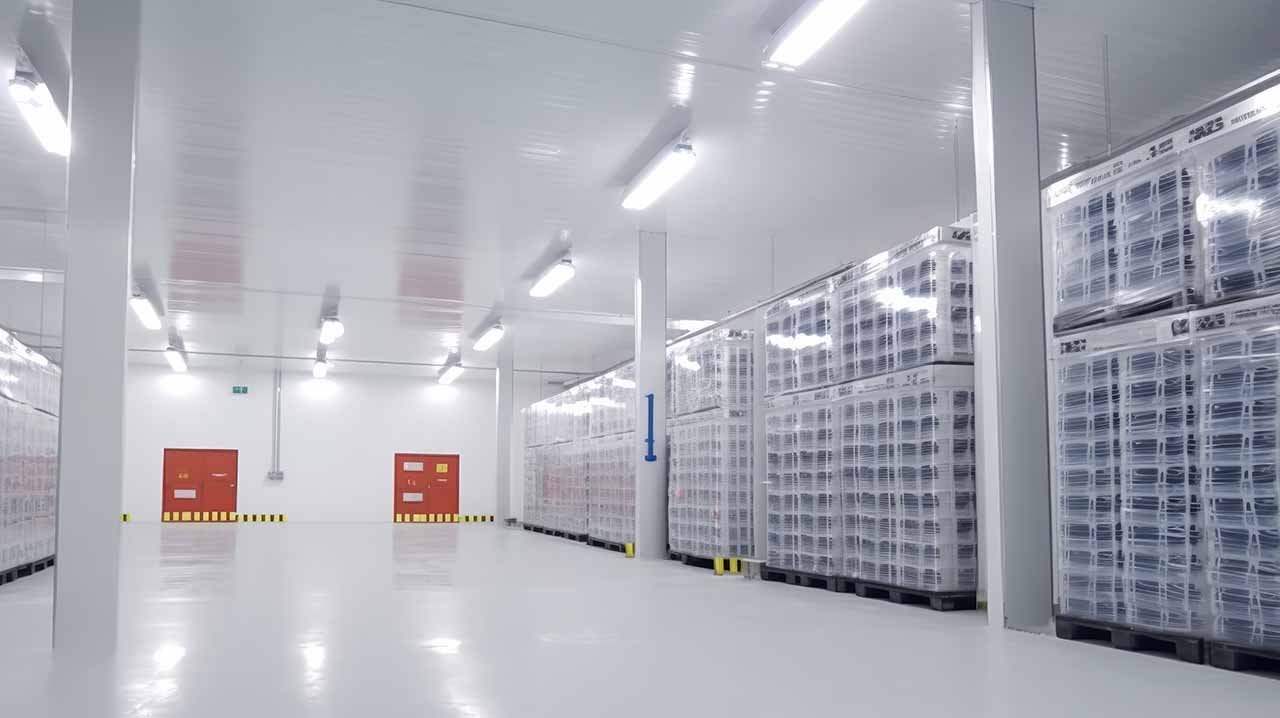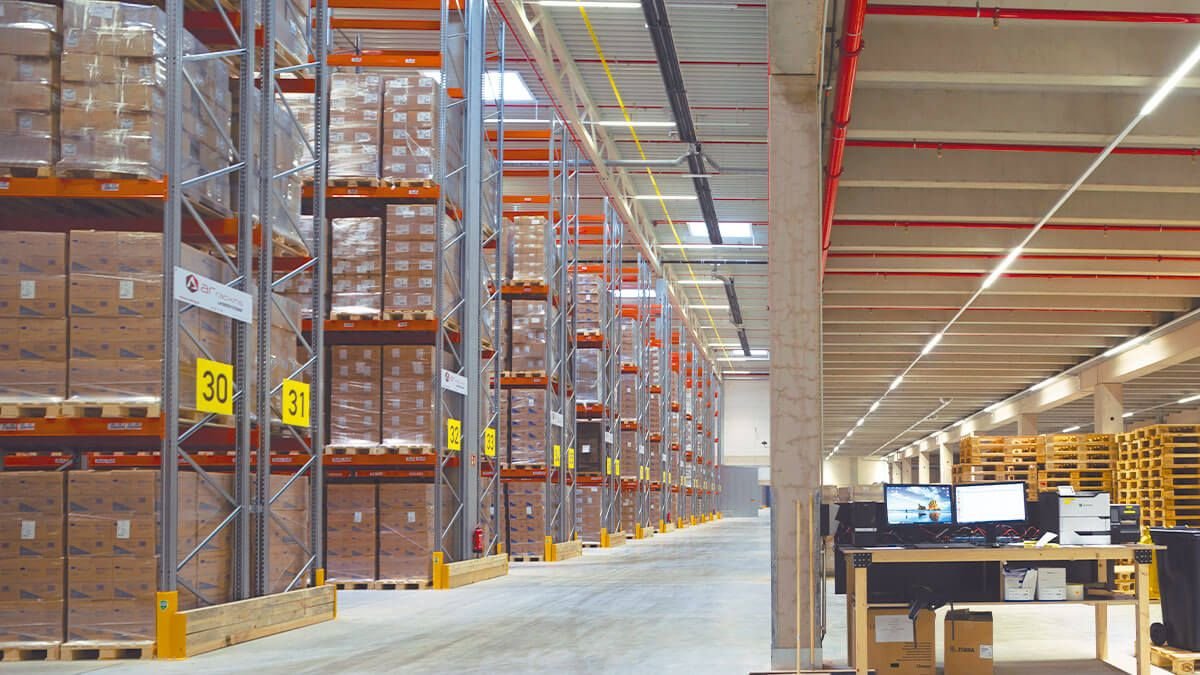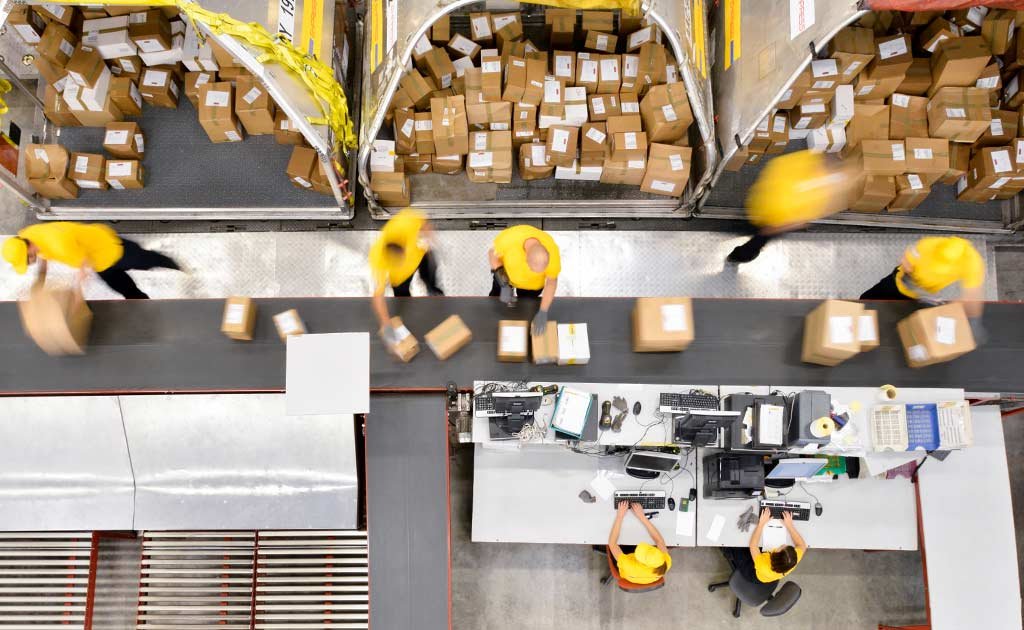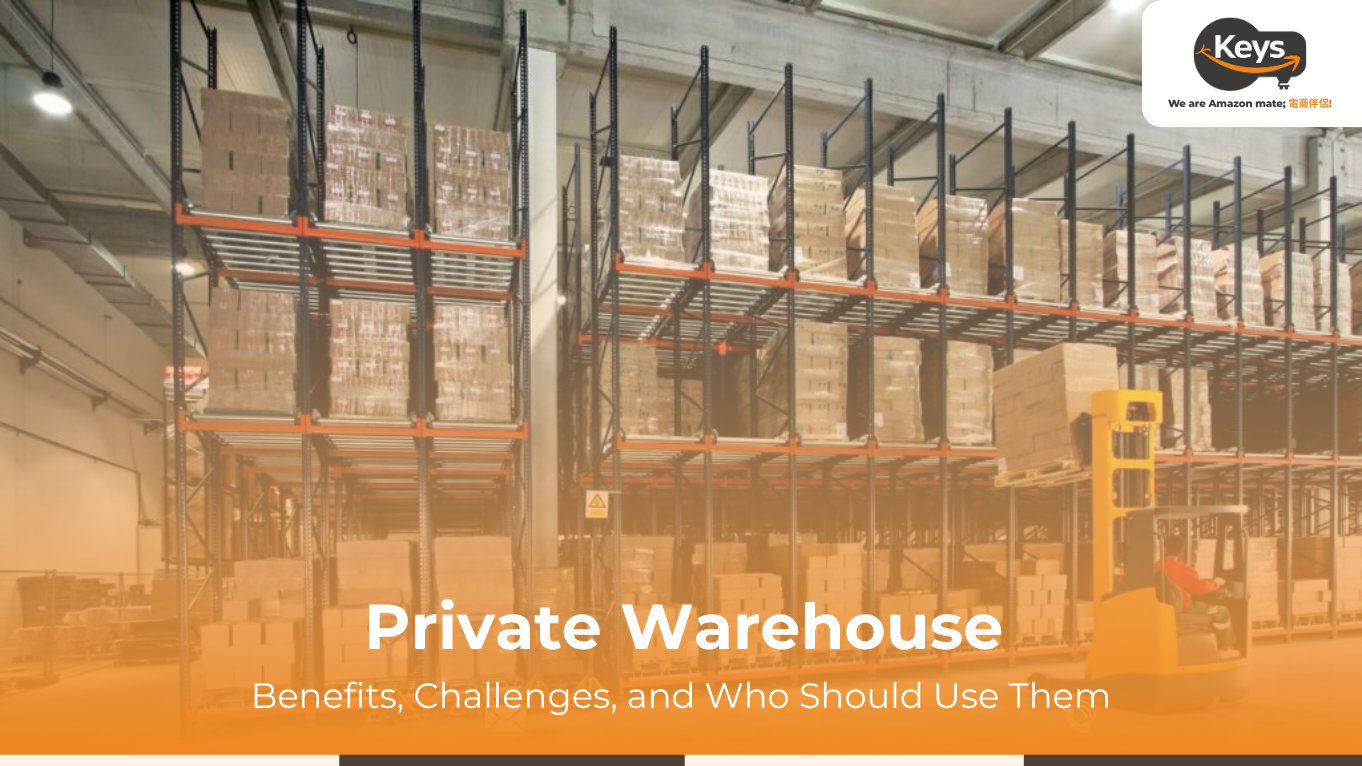In today’s competitive logistics landscape, private warehouses play a vital role in supporting businesses that demand full control over their storage and fulfillment operations. Unlike public facilities, private warehouses are owned or leased by a single company, enabling greater customization, brand consistency, and operational efficiency. This model is particularly attractive for enterprises with stable demand and specialized storage requirements. In this article, we explore the structure, benefits, and challenges of private warehousing, and help you decide if it’s the right fit for your supply chain.
What is Private Warehousing?
Private warehouses are storage facilities that are owned or exclusively operated by a single company to support its internal logistics and distribution needs. Unlike public warehouses, which serve multiple clients on a shared basis, private warehouses offer full control over inventory handling, layout design, and operational protocols. This level of autonomy allows businesses to tailor the facility to specific product types, seasonal flows, or service-level commitments – making them ideal for large-scale retailers, manufacturers, and enterprises with stable or high-volume inventory turnover.
According to industry practices, private warehouses are often integrated with proprietary systems for inventory management, fulfillment automation, and real-time analytics, allowing for enhanced efficiency and brand consistency across the supply chain. While the initial capital investment is significant, businesses benefit from long-term cost savings, improved security, and reduced dependency on third-party logistics. For companies seeking control, customization, and scalability within their own ecosystem, private warehouses remain a strategic advantage in modern logistics.

Common Types of Private Warehouses
Private warehouses are owned and operated by a single company, providing tailored storage solutions that meet specific operational needs. These facilities are designed to enhance efficiency and control over inventory management. Here are some common types of private warehouses:
Centralized Distribution Centers
Centralized distribution centers serve as the main hub for storing and distributing products to various locations. These facilities streamline logistics by consolidating inventory in one location, allowing for efficient order fulfillment and reduced transportation costs. Companies can manage their supply chain more effectively by centralizing their operations in a single facility.
E-commerce Fulfillment Facilities
E-commerce fulfillment facilities are specifically designed to handle the unique demands of online retail. These warehouses focus on rapid order processing and shipping, ensuring that customers receive their products quickly. With the rise of online shopping, these facilities have become essential for businesses looking to enhance their customer service and meet delivery expectations.
Temperature-Controlled Storage (Cold Warehouses)
Temperature-controlled storage, or cold warehouses, are crucial for businesses that handle perishable goods, pharmaceuticals, or other temperature-sensitive items. These facilities maintain specific temperature ranges to preserve product quality and extend shelf life. By investing in cold storage, companies can ensure that their products remain safe and viable for consumers.

High-Tech Automated Warehouses
High-tech automated warehouses utilize advanced technologies such as robotics and artificial intelligence to optimize operations. These facilities enhance efficiency by automating tasks such as inventory management, order picking, and shipping. The integration of technology not only reduces labor costs but also minimizes errors, leading to improved accuracy in order fulfillment.
Bonded Warehousing for Customs Clearance
Bonded warehouses are specialized facilities that allow businesses to store imported goods without paying duties until the items are released. This type of warehouse is particularly beneficial for companies engaged in international trade, as it helps manage cash flow and simplifies customs clearance processes. By utilizing bonded warehousing, businesses can defer tax payments and streamline their import operations.
Consolidation Warehouses for Shipment Efficiency
Consolidation warehouses combine shipments from multiple suppliers into larger, more cost-effective loads. This approach reduces transportation costs and improves shipment efficiency by maximizing the use of available space. Companies can benefit from lower shipping rates and enhanced logistics coordination by utilizing consolidation warehouses.

Virtual Warehousing Solutions
Virtual warehousing solutions leverage technology to manage inventory across multiple locations without the need for physical storage. This model allows businesses to optimize their supply chain by providing real-time visibility into inventory levels and locations. Virtual warehousing can enhance flexibility and responsiveness, making it an attractive option for companies looking to streamline their operations.
Comparing Private and Public Warehousing
The following table summarizes the main aspects of private and public warehouses, helping businesses make informed decisions based on their specific needs.
| Feature | Private Warehouses | Public Warehouses |
| Ownership | Owned and operated by a single company | Operated by third-party logistics providers |
| Control | Complete control over inventory and operations | Limited control; dependent on the provider’s policies |
| Cost Structure | High initial investment; potential for lower long-term costs | Pay-as-you-go model; can become costly over time |
| Flexibility | Less flexible; harder to scale operations quickly | Highly flexible; easy to adjust storage needs |
| Service Offerings | Tailored services and specialized handling | Standardized services; may vary by provider |
| Scalability | Limited scalability; requires significant investment for expansion | Easily scalable; can accommodate fluctuating demands |
| Customization | High level of customization for branding and operations | Limited customization options |
Key Benefits of Private Warehouses
By providing tailored solutions, these facilities help businesses improve efficiency, reduce costs, and maintain control over their inventory. Here are some key benefits of private warehouses:
Improved Inventory Accuracy and Control
One of the primary advantages of private warehouses is the enhanced accuracy and control over inventory management. Companies can implement customized inventory systems that allow for real-time tracking and monitoring of stock levels. This precision helps reduce errors, minimize stockouts, and optimize inventory turnover, ultimately leading to better customer satisfaction.

Lower Transportation and Delivery Costs
Private warehouses can lead to significant reductions in transportation and delivery costs. By strategically locating these facilities closer to key markets or suppliers, businesses can decrease shipping distances and associated expenses. This proximity not only lowers transportation costs but also improves delivery times, enhancing overall service levels.
Strengthened Security and Risk Mitigation
Security is a critical concern for any business handling valuable goods. Private warehouses typically offer enhanced security measures, including surveillance systems, restricted access, and controlled environments. These features help mitigate risks associated with theft, damage, or loss, providing peace of mind for businesses and their customers.
Greater Operational Flexibility
Private warehouses provide businesses with greater operational flexibility compared to public options. Companies can customize their warehouse layouts, workflows, and processes to meet specific needs. This adaptability allows businesses to respond quickly to changing market demands, seasonal fluctuations, or unexpected challenges, ensuring they remain competitive.

Customization and Brand Consistency
With private warehouses, companies have the opportunity to tailor their operations to align with their brand identity. This customization can include specialized handling processes, packaging, and even the design of the warehouse itself. By maintaining consistency in branding and operations, businesses can enhance their customer experience and strengthen their market presence.
Revenue Opportunities from Extra Space
Another significant benefit of private warehouses is the potential for generating additional revenue. Companies can lease out unused portions of their warehouse space to other businesses, creating a new income stream. This flexibility allows businesses to maximize their assets and improve overall profitability, especially during periods of fluctuating demand.

Challenges to Consider with Private Warehousing
While private warehouses offer numerous benefits, they also come with several challenges that businesses must consider before making a commitment. Understanding these challenges can help companies make informed decisions about their warehousing strategies.
Significant Upfront Capital Investment
One of the most considerable challenges associated with private warehouses is the significant upfront capital investment required. Establishing a private warehouse involves costs related to land acquisition, construction, equipment, and technology. This initial financial burden can be a barrier for many businesses, especially smaller ones that may not have the necessary capital readily available.
Ongoing Maintenance and Staffing Costs
In addition to the initial investment, private warehouses incur ongoing maintenance and staffing costs. Businesses must budget for utilities, repairs, and regular upkeep of the facility. Furthermore, hiring and training staff to manage warehouse operations adds to the overall operational expenses. These ongoing costs can strain budgets, particularly if the warehouse is not utilized to its full capacity.

Limited Agility During Sudden Demand Changes
Private warehouses can also pose challenges in terms of agility. When demand fluctuates unexpectedly, businesses may find it difficult to scale operations up or down quickly. Unlike public warehouses, which offer more flexibility in adjusting storage space, private warehouses require significant time and resources to modify operations, potentially leading to inefficiencies during peak periods or downturns.
Time-Intensive Setup and Construction
Setting up a private warehouse is often a time-intensive process. From securing permits and designing the facility to constructing the building and installing necessary equipment, the timeline can be lengthy. This delay can hinder a company’s ability to respond to market opportunities or changes in demand promptly, impacting overall competitiveness.
Private Warehouse FAQ
What is the primary function of a private warehouse?
The primary function of a private warehouse is to provide a dedicated storage facility owned and operated by a single company. This allows businesses to manage their inventory more effectively, control logistics operations, and customize the warehouse layout to meet specific needs. Private warehouses enable companies to streamline their supply chain processes, reduce transportation costs, and enhance overall operational efficiency by maintaining direct oversight of their goods and inventory management.
Does Amazon operate private warehouses?
Amazon does not operate private warehouses in the traditional sense; however, it has a vast network of fulfillment centers and warehouses that serve its logistics needs. These facilities are designed to store and distribute products efficiently, supporting both Amazon’s own sales and those of third-party sellers using its platform. While these warehouses are not classified as private warehouses owned by individual companies, they function similarly by providing dedicated storage and fulfillment services tailored to Amazon’s operational requirements.
Why Choose Keys Logistics for Your Private Warehousing Needs?
Keys Logistics stands out as a trusted logistics partner for businesses seeking reliable and scalable private warehouses. With strategically located storage facilities across the U.S., U.K., and Europe, Keys Logistics helps businesses optimize inventory flow, reduce last-mile delivery times, and maintain operational control without the burden of self-managing infrastructure.
What makes Keys Logistics exceptional is its investment in intelligent fulfillment systems – integrated technologies that streamline warehouse operations, from real-time inventory tracking to automated order processing. Clients benefit from customized warehousing solutions tailored to specific product types, market demands, and business models, including e-commerce, B2B, and Amazon FBA support.
Moreover, Keys Logistics offers 24/7 customer service, seamless integration with platforms like Shopify and Amazon, and flexible pricing models that scale with your business growth. Whether you’re a growing brand or an enterprise looking for full control and efficiency, Keys Logistics provides the agility and infrastructure you need in private warehousing – without the overhead.
In today’s fast-moving supply chain landscape, private warehouses offer tailored solutions for businesses seeking greater control, security, and scalability. While the upfront investment may be significant, the long-term benefits—like brand consistency and operational flexibility—make them a powerful asset for companies with stable or high-volume demand. Evaluating your specific logistics goals will help determine if private warehousing is the right strategic move.
Looking to streamline your storage and fulfillment operations? Keys Logistics provides fully customized private warehouse solutions backed by advanced technology, strategic locations, and 24/7 support. Contact us today to learn how we can optimize your warehousing strategy.












 Tiếng Việt
Tiếng Việt 中文 (中国)
中文 (中国)

